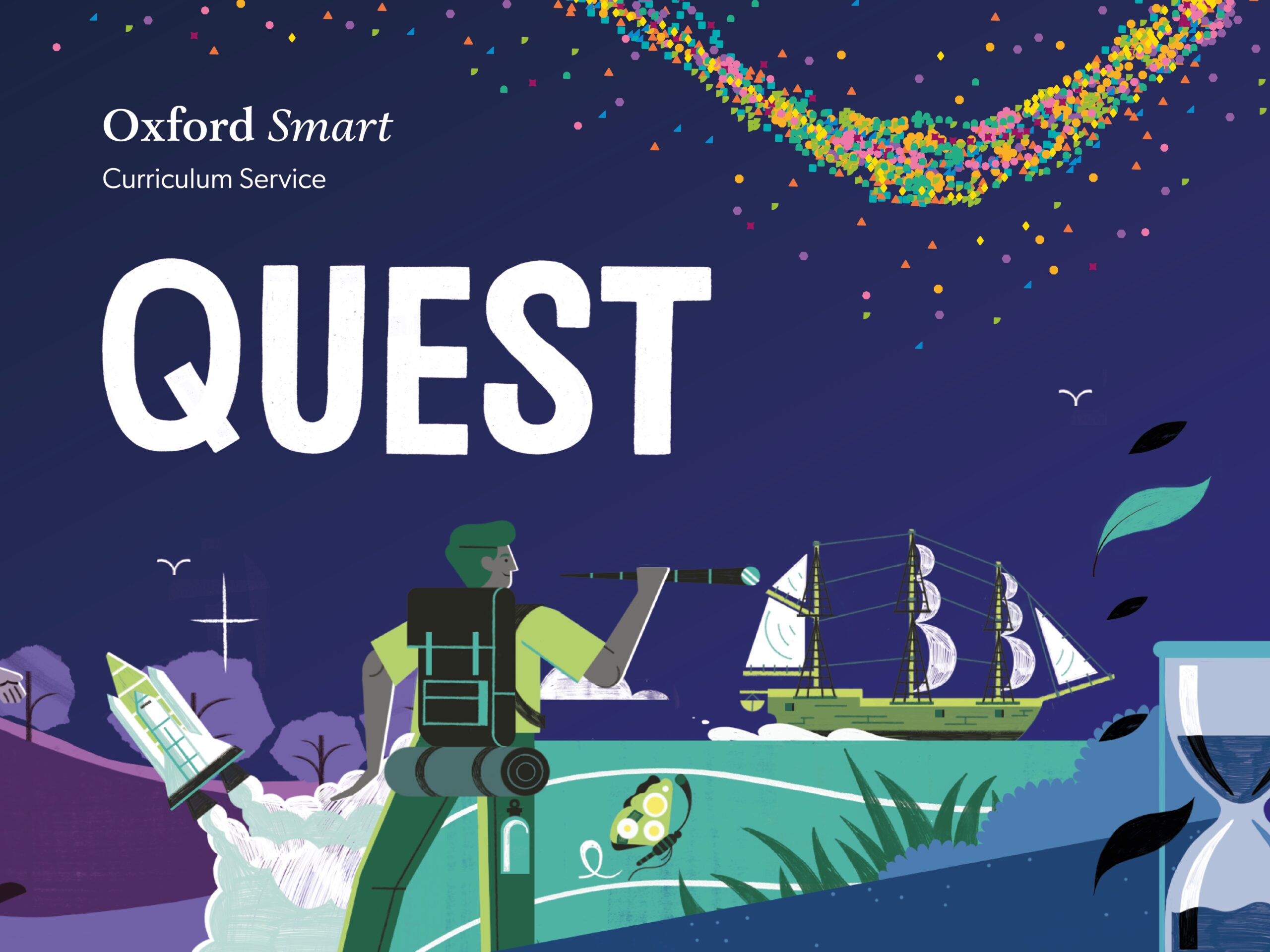In this new post-Covid world, awe and wonder feels like an essential ingredient that is needed for our KS3 curriculum. We want to capture the attention of the students, motivate them and provide an inner desire to learn. Raya Bidshahri, Founder and CEO of Academy explains that ‘awe-based learning is fuelled by curiosity, imagination and radical creativity. In curricula, we need to encourage questioning and start emphasizing awe-inspiring content.’
As a department we are working hard to increase awe and wonder with the aim to improve the number of students that are choosing to continue studying English at A Level and beyond. As staff, we feel passionately about our subject, and we want to pass that on to our students.
Becoming an Oxford Smart Quest Pioneer School was important for us because we wanted to develop a curriculum which allows our students to feel excited about English and feel like our lessons are diverse and developing their knowledge with passion, relevance and texts which really capture their attention.
It has been proven that learners who have experiences of awe and wonder and feelings of joy and satisfaction when learning encounter a boost in motivation. Not only that, but the learners will also see an increase in their ability to embrace challenges and gain resilience when facing failure. Having a curriculum which helps to generate feelings of awe in the students has been shown to nurture their wellbeing. And, in these challenging post-Covid times, it has also been proven that an increase in wonder will help to support some of the hardest to reach students in our classroom and help them to become more engaged in their lessons. These are all traits that we are seeing through our teaching of Quest.
But the benefits haven’t ended there. Staff in the department are starting to find that they too are finding the increase in awe and wonder in their lessons is having a positive impact on their own motivation. They can see the eagerness and curiosity in their students which is at the very heart of why we teach.
Quest is packed full of a wide range of diverse reading materials that have helped students to engage in reading for pleasure. Our students have enjoyed reading non-fiction texts such as a letter from Captain Scott written when he was trekking through Antarctica, the transcript from a speech by Chimamanda Ngozi Adichie and most recently an extract from Enola Holmes by Nancy Springer. These texts have been brilliant at opening our students’ eyes to a world away from Hayling Island. They have challenged students in terms of extending their vocabulary, building empathy, and allowing them to see perspectives that are different from their own. Our students are particularly enjoying the opportunities to be creative – they are loving the work that we are doing on Crime and Consequences. In particular they have enjoyed the chance to write their own crime fiction using the conventions from the genre.
As a college we work tirelessly to ensure that our community is happy, healthy and high-performing. Quest, is designed to inspire learners with a love of learning that unlocks personal joy, increases wellbeing, motivation and resilience. It embodies the values we uphold.

About the author
Lorraine Coram is Head of English at The Hayling College, a smaller than average school for 11-16 year olds, for the last 14 years. She is currently revamping her curriculum having moved back to a 3 year KS3. Being part of the Oxford Smart Quest pilot is part of her department’s plan to help students rediscover the awe and wonder of English and to increase the amount of students continue studying English at KS5 and beyond.
More blogs from the Oxford English team:
- How to revise A Level Required Practicals
- Helping you and your children prepare for the phonics screening check
- Help your children become confident readers for the Phonics Screening Check
- 11-16 science: making the most of Year 9
- Making GCSE Science relevant
- Reducing cognitive load in Oxford Smart Activate

